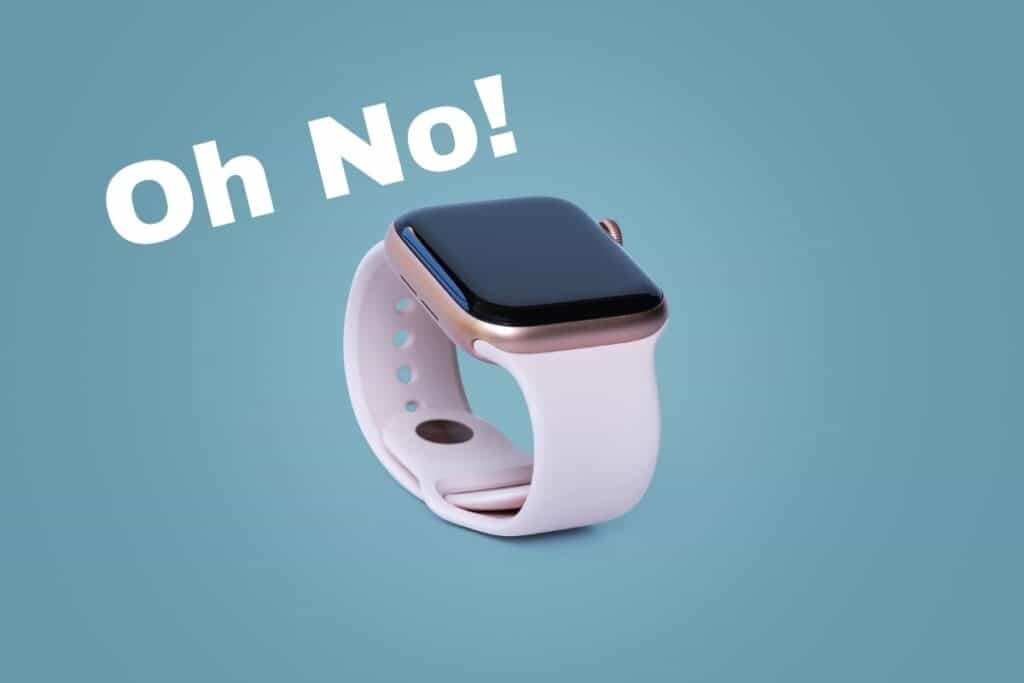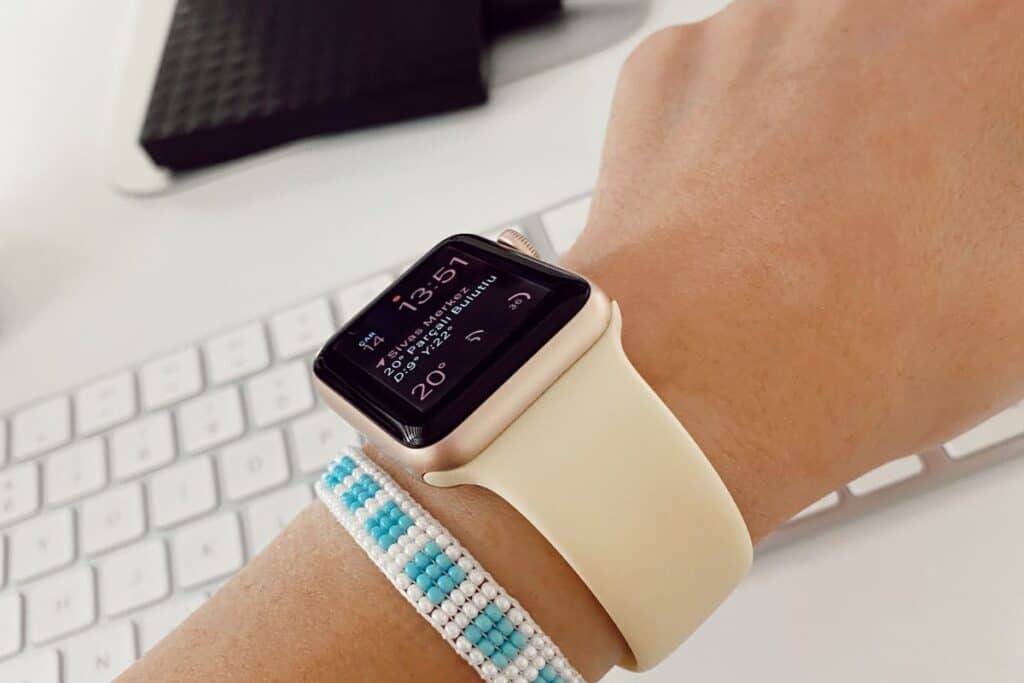Here’s How Long An Apple Watch Lasts! (Take Note!)
Apple Watches are all the hype these days, but do they have a long shelf life? How long do Apple Watches last?
With the same battery, an Apple watch can last for three years. After this time, you will likely need to replace the battery, or you will experience a decline in performance. If you have been using the same watch for five years, it’s time to upgrade to a new watch.
We have been using Apple watches since the day they rolled out. Using our experience and knowledge, we educate you about the life of an Apple watch.
How Long Does an Apple Watch Last?
The life of an Apple watch depends upon the following factors.
How You Use It
Apple Watches are designed to last long, but how long your particular Apple Watch lasts will depend on how you use it.
If you are constantly charging your Apple Watch, then you can expect it to last up to three years with its current battery.

However, if you only charge your watch when it is low on battery, then it may last much longer. The battery life of an Apple Watch also varies depending on which model you have.
The original Apple Watch, for example, had a much shorter battery life than the newer models. Ultimately, how long your Apple Watch lasts is up to you.
The Type of Apple Watch
When it comes to how long an Apple Watch will last, it depends upon the model you own. The original Apple Watch is estimated to have a lifespan of around 18 hours on a single charge.
However, the new Series 3 and 4 models are estimated to last up to double that, at 36 hours. This is due to improved battery-saving technology.
In addition, the newer models are better protected from water and other liquids, meaning they should last longer overall.
So if you’re wondering how long an Apple Watch will last, it depends on your model. But rest assured, the new models will give you much more bang for your buck.
Exposure to Water and Other Liquids
It has been said that Apple Watches last around three years with proper care. However, this number may be different based on how often the watch is used and how it is used.
For example, if you regularly expose your watch to liquids, then it may not last as long as someone who does not expose their watch to liquids. Additionally, how you use your watch may also affect how long it lasts.
If you use your watch for activities that put a lot of stress on the watch, such as running or lifting weights, then it may not last as long as someone who uses their watch primarily for tasks that don’t stress the watch. In short, there are a variety of factors that can affect how long an Apple Watch lasts.

Do Apple Watches Get Outdated?
If it cannot run the latest watchOS software, then your watch is outdated. However, with a newer Apple Watch, you do not have to worry because it is typically four to five years before an Apple Watch fails to run the latest version of watchOS.
Newer versions of the Apple Watch tend to be released every other year, so even if your watch is a few years old, it should still be able to stay up-to-date.
The main downside of having an older Apple Watch is that some new apps may not be compatible with it, and eventually, certain features may stop working entirely.
Nevertheless, as long as you keep your Apple Watch updated with the latest software, it should remain a valuable part of your life for many years to come.
How Long Do Series 3 Apple Watches Last?
According to Apple, the average charge length of the Series 3 is 18 hours. However, there are many factors that can affect battery life, such as app usage, cellular connectivity, and brightness settings.
With moderate use, it is not unusual for the Series 3 to last for two days on a single charge. However, if you are using your watch for heavy exercise tracking or use apps that require a lot of processing power, you may find that your watch needs to be charged more frequently.
Ultimately, the lifespan of your Series 3 will depend on how you use it. With careful usage, it is possible to get years of use out of the Series 3.
Should You Wear Your Apple Watch All Day?
There’s no definitive answer to this, but there’s no need to worry about negative health effects from doing so.
The Watch uses low-power Bluetooth and Wi-Fi to stay connected to your iPhone, and the amount of EMF exposure is far lower than what you’d experience from using your phone directly.
It’s also worth noting that the Watch’s sensors are designed to minimize power usage, so they’re not constantly emitting EMF.
However, if you’re concerned about EMF exposure, you can always turn off your watch’s cellular or Wi-Fi connection.
If you’re not wearing it in a way that constricts your circulation or causes discomfort, there’s no reason not to wear your Apple Watch all day.

Should You Replace the Battery Yourself?
The short answer is no; you cannot replace the battery on your own. The battery in the Apple Watch is not user-replaceable, so you will need to take it to a tech shop specializing in Apple repairs.
However, there are some DIY battery replacement kits available online. These kits come with a new battery and all the necessary tools to complete the repair.
While it is possible to replace the battery yourself, we recommend taking your watch to a professional. Replacing the battery on your own can void your warranty and cause damage to your watch.
How to Make an Apple Watch Last
Here are a few easy tips:
- Dimming the brightness of your watch will help conserve battery power.
- Disabling any unnecessary features, such as the always-on display or raise-to-wake, can also help extend your battery life.
- Keeping your watch face clean and free of debris will help ensure that the sensors are able to function properly.
- And finally, make sure to keep your watch software up to date, as Apple often releases new updates that can improve performance and battery life.
By following these simple tips, you can help make sure your Apple Watch lasts as long as possible.
Factors Affecting an Apple Watch’s Life
Exposure to High Temperatures
You might damage the battery if you wear your Apple Watch in extremely hot conditions. Battery life is Reduced Performance indicates that the internal temperature of your watch is too high.
For example, if you wear your Apple Watch in the sauna or steam room or expose it to direct sunlight for extended periods, it might cause water damage. If your watch is exposed to these temperatures for an extended period of time, it might eventually lead to battery deterioration.
You can avoid this by taking off your watch and letting it cool down before turning it back on. If you notice that your watch isn’t performing as well as it should, take it off and let it cool down in a cool, dry place out of direct sunlight.
If you have any concerns about the condition of your watch, please contact Apple Support.
Exposure to Liquids
It is a common misconception that Apple Watches are waterproof. While the Watch can withstand exposure to small amounts of liquid, such as rain or sweat, it is not designed to be submerged in water.
Many people don’t realize that even exposure to a small amount of liquid can damage the Watch’s battery.
When the battery comes into contact with water, it begins to corrode. This process causes the battery to lose its ability to hold a charge, eventually leading to complete failure.
In addition, water exposure can also cause the Watch’s sensors to malfunction. As a result, it is important to avoid exposing your Apple Watch to any liquids, even if you think it is safe.
Key Takeaways
- Make sure to charge your Apple watch regularly.
- Change the battery after every three years.
- If you have been using the watch for more than five years, it’s time to replace it.
- If the watch cannot run the latest iOS, you’ll need to change the watch.
- Make sure not to expose your Apple watch to heat and liquids.
